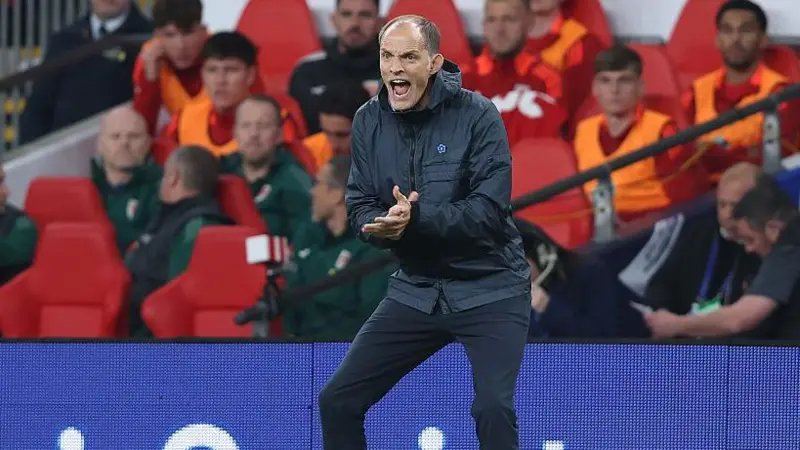England manager Thomas Tuchel has caused a stir after questioning the atmosphere at Wembley following his side’s 3-0 friendly win over Wales, saying he was “underwhelmed” by the home support despite the dominant performance.
The German coach, who took charge of England at the start of 2025, said after the match: “I love English football and the fans, but the atmosphere did not match the performance. We were 3-0 up after 20 minutes, winning ball after ball, and I was thinking — why is the roof still on? It’s nothing big, but I was a little underwhelmed.”
Tuchel added that “it was sad” that only the Welsh fans could be heard for stretches of the game. While his comments were measured, they have reignited a long-running debate about the atmosphere at England’s home stadium — and whether Wembley crowds are too quiet.
Fans’ response and FSA defence
Some England supporters took offence, arguing that midweek fixtures at Wembley are difficult to attend due to travel issues. Others agreed with Tuchel, saying the national team’s home matches often lack energy compared to away fixtures.
The Football Supporters’ Association (FSA) responded diplomatically, saying: “We appreciate Thomas Tuchel pushing for a better atmosphere, it’s something we all want. But we hope he understands the challenges many fans face getting to midweek games.”
BBC football correspondent John Murray noted that Tuchel’s comments touch on a wider issue. “Wembley crowds can be quiet,” he said. “You often see empty seats after half-time and paper planes being thrown. The stadium’s hospitality areas don’t help either — it’s never a good look when seats behind the dugouts remain vacant.”
The England Supporters Travel Club has even sought suggestions from members on how to improve “the visual and vocal atmosphere” at home games.
Not the first manager to criticise fans
Tuchel is not the first England boss to highlight the subdued home atmosphere. Fabio Capello once said he preferred playing away because “players play with more confidence” when not whistled for mistakes.
Roy Hodgson lamented low attendances in 2014, saying friendlies failed to “excite the public.” Gareth Southgate also commented on fans throwing paper planes in 2024, though he downplayed its significance, noting that supporters “sang the anthem for most of the match.”
Tuchel’s remarks, however, were more pointed — and more public — than most of his predecessors. Known for his fiery character and blunt honesty, the former Chelsea, PSG, and Bayern Munich boss is no stranger to controversy. He previously apologised for describing Jude Bellingham’s behaviour as “repulsive,” insisting it was a language slip.
German journalist Constantin Eckner says Tuchel’s outspokenness is just part of his personality. “This isn’t about being German — it’s how Tuchel is. He’s direct, brutally honest, and often confrontational,” Eckner said. “He’s used to club football atmospheres, where fans are constantly loud. International games are different, and he’s still adjusting.”
Why Wembley feels different
Critics say the problem lies in the nature of England’s fixtures. With England rarely struggling in qualifiers — losing just two of 79 competitive games since 2008 — home games often lack jeopardy.
Former England captain Wayne Rooney described many recent matches as “nonsense,” adding that predictable wins make them “a bit boring.”
By contrast, away fixtures like England’s recent match in Serbia have been praised for their passionate support. The difference, many believe, is that Wembley games often attract casual fans or corporate guests rather than the hardcore supporters who travel abroad.
A challenge for Tuchel
Tuchel’s comments have been divisive, but many pundits say his intentions were positive — to motivate fans as much as players. Former England defender Stephen Warnock told BBC Radio 5 Live: “The performance deserved a better response. Fans do give you energy. If I were in the stands, I’d take it as a challenge — what more can I do to help the team?”
Whether Tuchel’s blunt approach will improve the atmosphere or alienate fans remains to be seen. But one thing is clear: he has reignited an old conversation about England’s relationship with Wembley — and whether the national stadium can ever truly feel like home.



